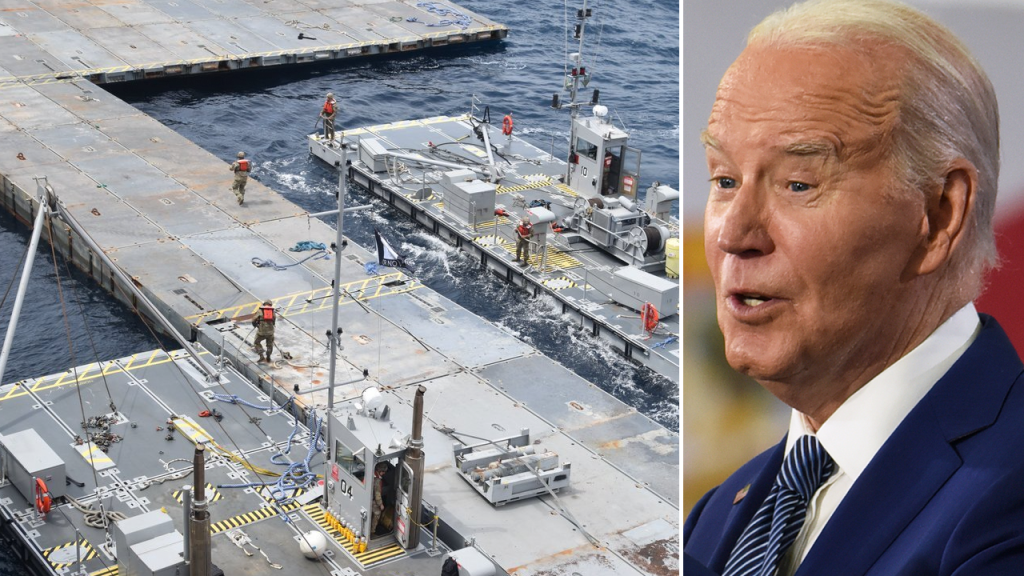The rising costs of a floating pier off the coast of Gaza aim to facilitate the delivery of humanitarian aid to civilians in the region. The U.S. project to construct the pier has generated controversy, as the estimated cost has nearly doubled to $320 million. U.S. Senator Roger Wicker criticized the project, calling it ill-conceived and warning of escalating costs and risks associated with operating the pier for only 90 days. President Biden directed the military to establish the pier as part of efforts to increase aid to Gaza by land, air, and sea.
Aid shipments will arrive at the pier via commercial ships from Cyprus and be transported to Gaza using a series of ships and causeways. The project, slated to process up to 2 million meals a day, raises concerns about security for U.S. troops onboard aircraft carriers alongside the pier. Defense Secretary Lloyd Austin assured that troops constructing the pier would be armed and able to defend themselves if attacked. Questions remain about who will operate the pier once construction is complete, with fears that Hamas may seek to sabotage the project.
The pier project could conflict with U.S. efforts to negotiate a ceasefire between Israel and Hamas. The U.S. hopes Hamas will agree to a ceasefire to release kidnapped hostages and secure the release of Palestinian terrorists. However, the project’s completion may require continued IDF presence in Gaza to secure aid deliveries, potentially undermining the ceasefire negotiation process. Lt. Col. Nadav Shoshani of the IDF expressed commitment to the project and emphasized the rigorous security protocols in place to ensure aid is approved and screened appropriately.
Kobi Michael, a security expert, pointed out the risk of Hamas attempting to control the operation of the pier if handed over to local entities like Qatar. This could complicate the security situation and contradict U.S. goals in the region. The project’s completion and long-term operation require strategic planning to prevent Hamas from disrupting aid deliveries and rearming. Jonathan Schanzer of the Foundation for Defense of Democracies suggested that relying on Cyprus for aid delivery could enhance regional security by preventing Hamas from rearming and stabilizing the region.
Overall, the construction of the floating pier in Gaza presents complex challenges related to cost, security, and long-term sustainability. U.S. involvement in aid delivery to Gaza is crucial for addressing humanitarian needs but must be carefully managed to prevent exploitation by militant groups like Hamas. The project’s success hinges on balancing aid delivery with security concerns, negotiation efforts with Hamas, and ongoing cooperation with regional partners to ensure a stable and secure environment for aid distribution.













